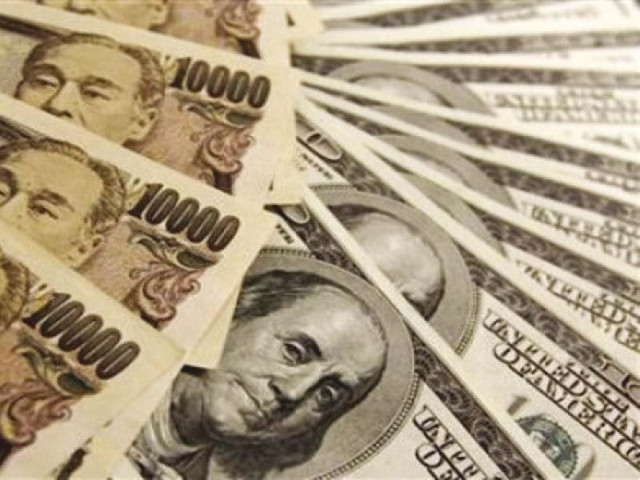Pakistan eyes $1.2b additional debt relief from G-20
Govt also signs $1.15b new financing agreements with World Bank

Pakistan is expected to get additional temporary debt relief of nearly $1.2 billion after the world’s richest nations agreed to extend debt-relief initiative for the ‘poorest’ nations by another six months to June 2021.
Pakistan’s participation in the debt relief initiative of the G-20 has dented its global image, as it has been clubbed with the world’s poorest countries despite its better socio-economic indicators than many African nations.
What appears to be a coincidence, a day after the group of 20 rich nations, G-20, announced to extend the moratorium by six months, Pakistan on Thursday signed loan financing agreements for another $1.15 billion loans.
The government celebrated the fresh lending deals at the highest political level, as signing ceremony was witnessed by Prime Minister Imran Khan himself.
Pakistan could receive moratorium on $950 million principal repayments and $200 million interest payments, which are due in January-June 2021 period, according to sources in the ministry of economic affairs. It is a temporary relief, as Islamabad will have to make these payments after two and half years.
Under the G-20 Covid-19 Debt Service Suspension Initiative, Pakistan has already applied for moratorium on about $2 billion repayments to 11 G-20 members for April-December 2020 period.
With fresh relief, the total relief will be close to $3.2 billion. The G-20 nations have not written off these loans, rather they have only extended the repayment period with additional interest cost.
Pakistan owes $20.7 billion to 11 members of the G-20. Out of this sum, an amount of $3.2 billion would mature by June 2021, including the interest payments, according to the economic affairs ministry.
On April 15, the G-20 nations announced a freeze on debt repayments from 76 countries, including Pakistan, during May-December, 2020 period, subject to the condition that each country would make a formal request.
Pakistan had assured the G-20 members that it would not contract new non-concessional debt during the suspension period other than the agreements under the initiative or in compliance with the limits agreed under the IMF Debt Limit Policy or World Bank Group Policy on non-concessional lending.
The G-20, in a communique issued by Saudi Arabia on Wednesday, said it could order another six-month extension next year. The World Bank had requested one full year extension, which the G-20 nations did not agree. The G-20 countries also did not agree to the proposal of extending the debt relief initiative to private creditors from these countries.
The World Bank calculates that the debt of the poor nations – eligible for the external debt relief initiative – climbed to a record $744 billion last year, according to a report appeared in the Bloomberg. The World Bank estimates these countries could save $12 billion owed to government creditors this year.
Pakistan had decided that it would not seek debt relief from the private creditors after the international credit rating agencies warned of downgrading the country’s rating.
Pakistan is scheduled to make $10.6 billion repayments in this fiscal year and $1.2 billion relief would not be sufficient to address the country’s debt woes. The lack of participation by private and multilateral lenders limited the debt relief initiative’s impact.
New loans
Meanwhile, Pakistan on Thursday also signed financing agreements for $1.15 billion with the World Bank. The signing ceremony was witnessed by Prime Minister Imran Khan, indicating that the country’s pride in contracting new loans.
Pakistan and the World Bank signed an agreement for the K-P Hydropower & Renewable Energy Development Project worth $450 million. This project will support construction of 88MW Gabral-Kalam Hydropower Project; and construction of 157MW Madyan Hydropower Project.
The second agreement was signed for $700 million loan for evacuation of power from Dasu Hydropower (Phase-I) Project. Under this project, the NTDC will construct 765kV double circuit transmission line from Dasu HPP to Islamabad via Mansehra.
This transmission line will be used to evacuate power from 2,160MW Dasu Hydropower Project (Phase-I) and transmit electricity to respective Discos. This would significantly enhance the transmission capacity, reduce line losses and provide stability in the existing electricity network.
The financing agreements were signed by Najy Benhassine, Country Director, World Bank and Noor Ahmed, Secretary, Ministry of Economic Affairs. The signing ceremony was also witnessed by Makhdoom Khusro Bakhtiar, the economic affairs minister.
The prime minister said that hydropower generation had been one of the major sources of clean and cheap energy which was in line with his government’s priorities.
Bakhtiar said that Pakistan was committed to continue the structural reform process in the country. He also appreciated the World Bank for committing $200 million for locust control and development of agriculture sector development. However, this $200 million loan will be consumed for buying expensive 310 vehicles and 485 laptops in the name of poor farmers.





1733130350-0/Untitled-design-(76)1733130350-0-208x130.webp)











COMMENTS
Comments are moderated and generally will be posted if they are on-topic and not abusive.
For more information, please see our Comments FAQ